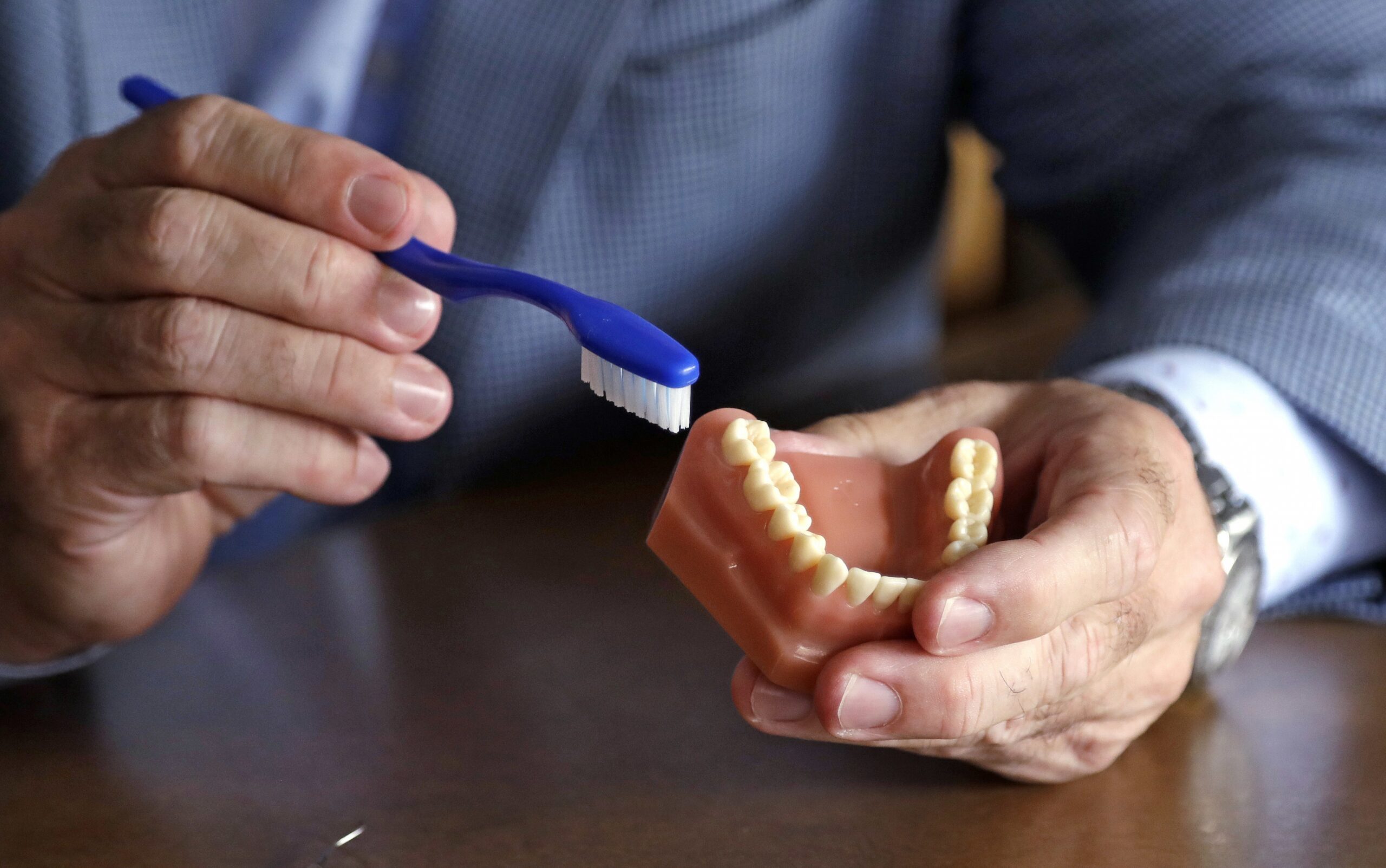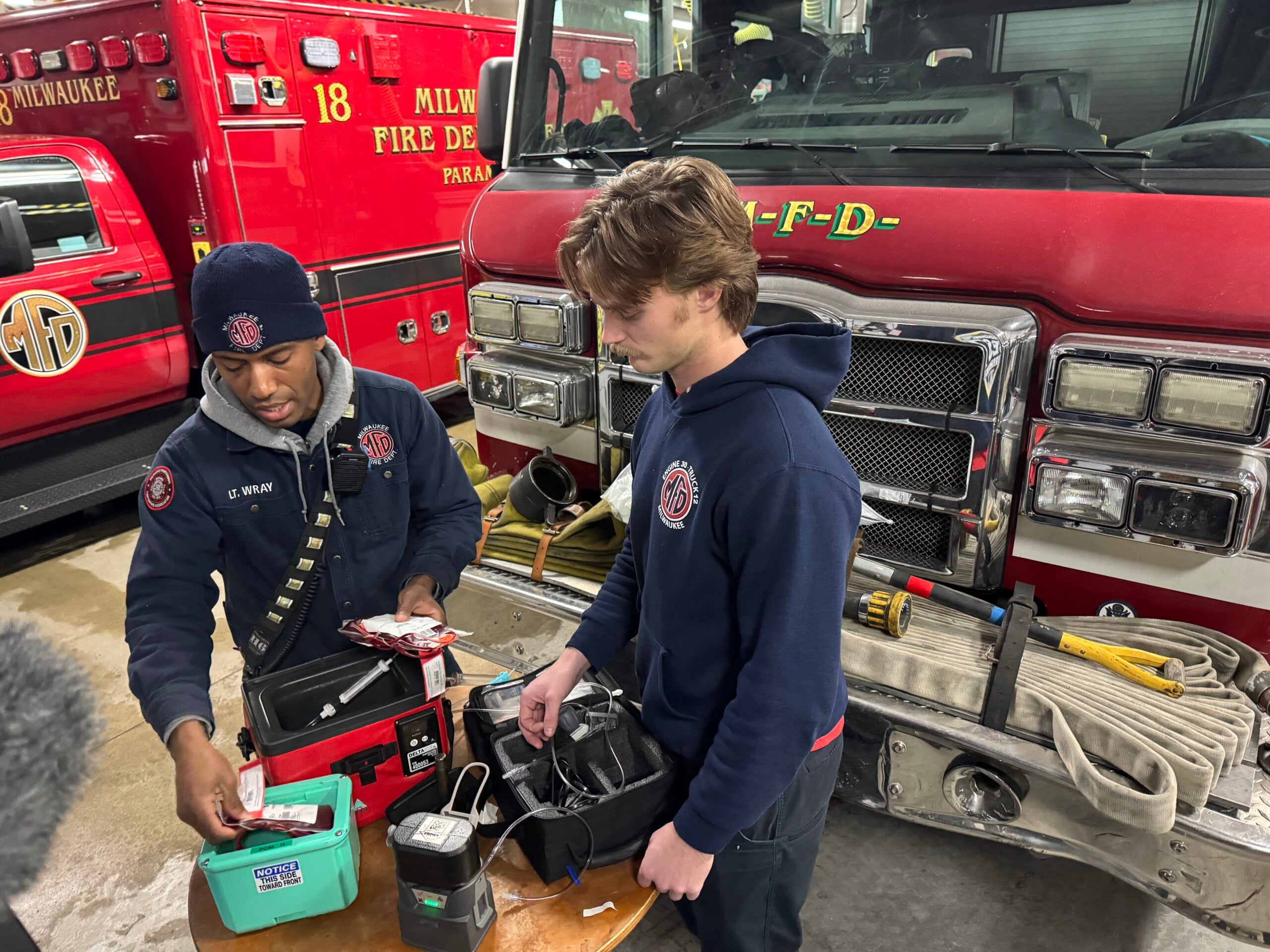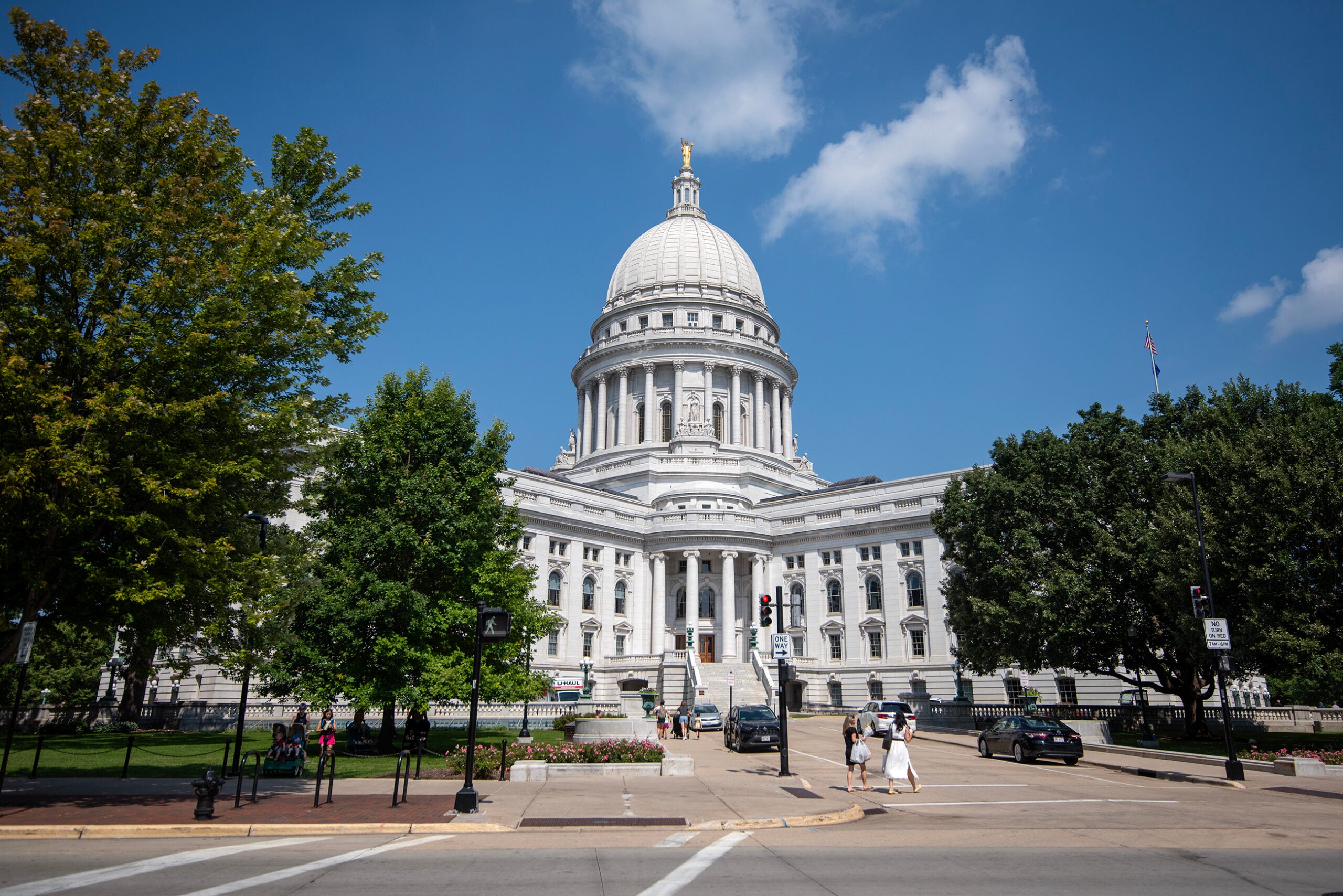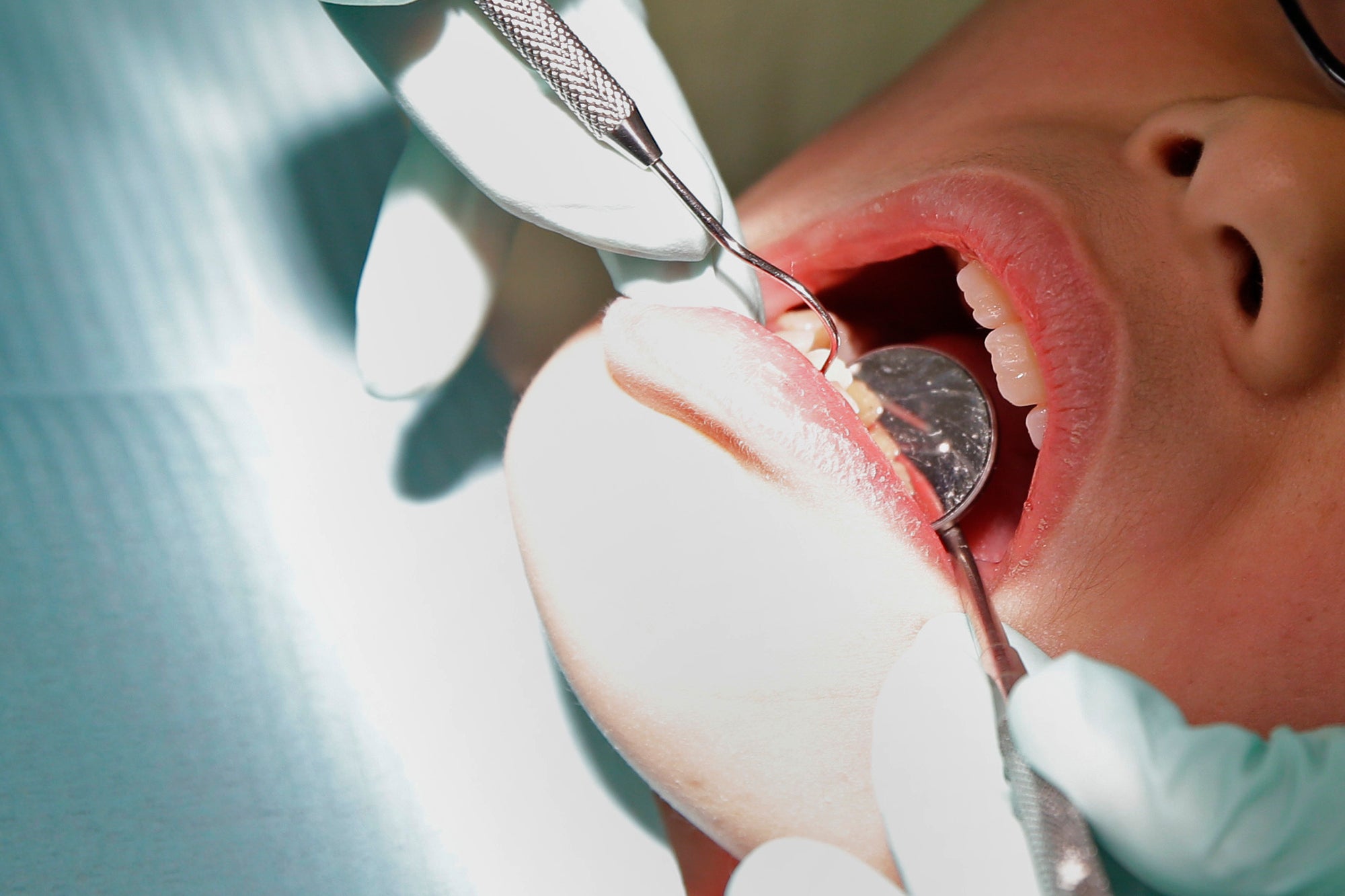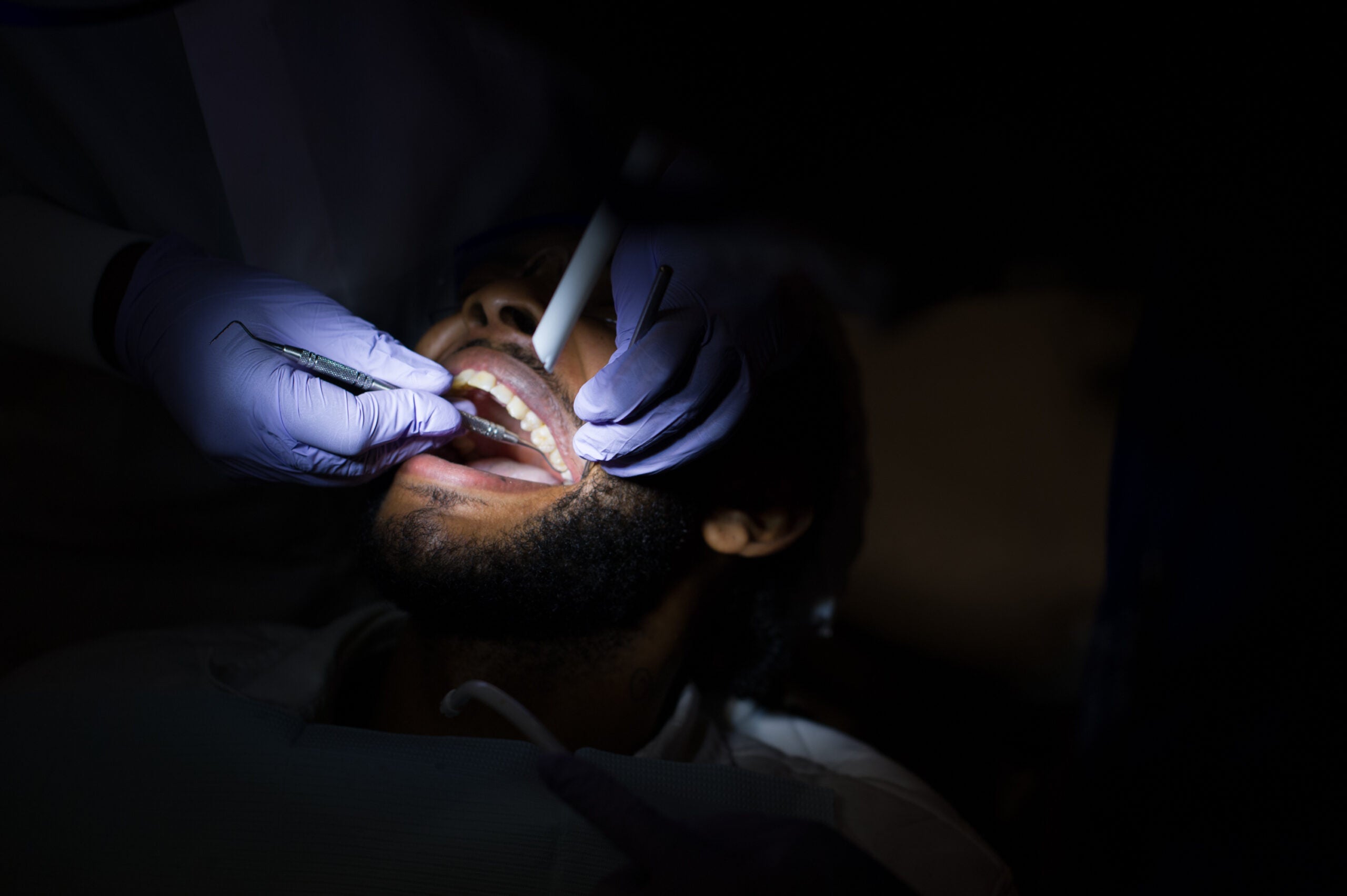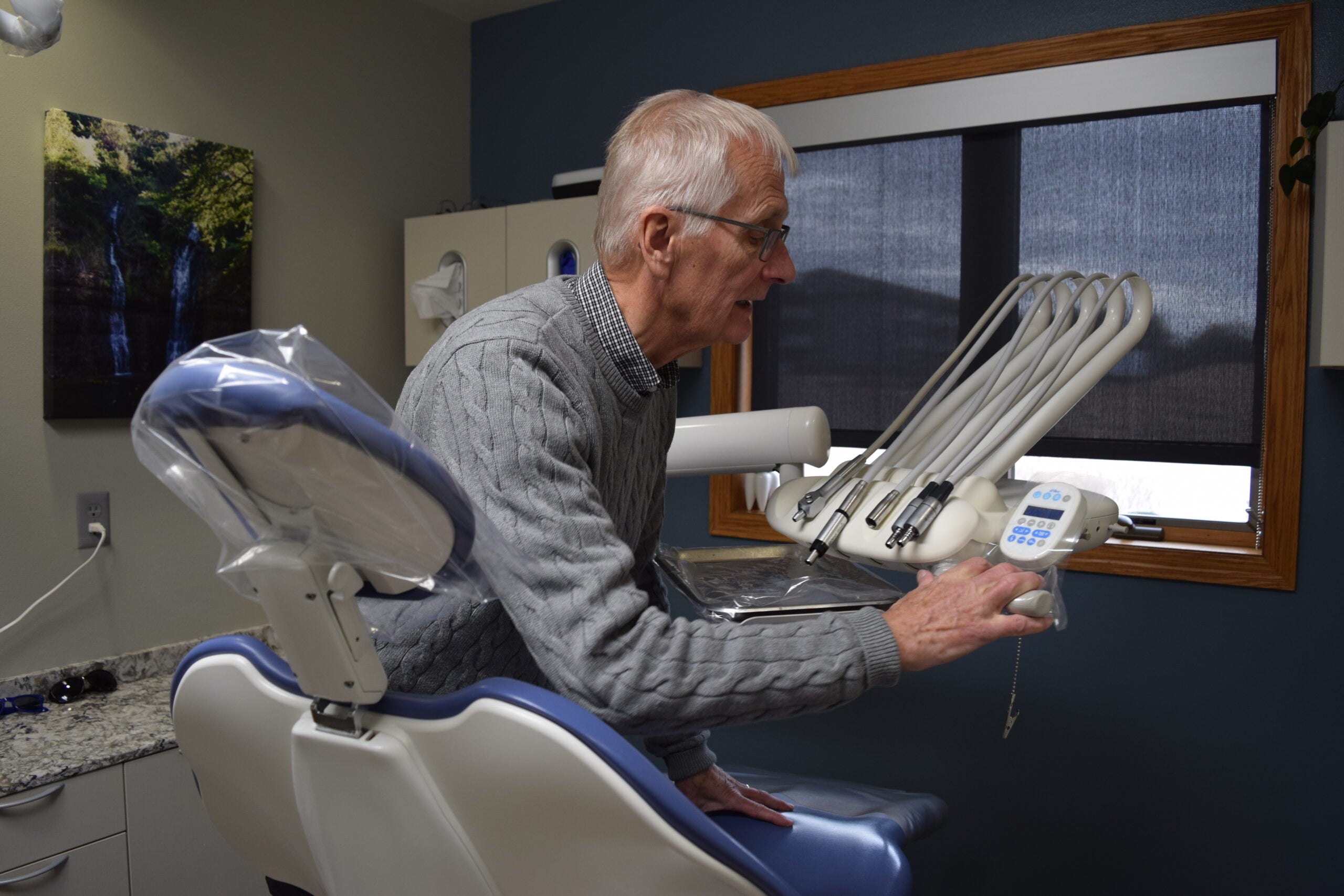On Wednesday morning, Chelsey Dequaine-Jerabek was eating breakfast when she felt pain on the upper right side of her mouth.
Her employer recently reduced her hours to part-time — a result of less work due to the new coronavirus pandemic — and her dental insurance is only good through the end of March.
Dequaine-Jerabek immediately emailed her dental office in downtown Madison and let them know every time she ate, the area where she had recent dental work hurt.
News with a little more humanity
WPR’s “Wisconsin Today” newsletter keeps you connected to the state you love without feeling overwhelmed. No paywall. No agenda. No corporate filter.
After a few emails back and forth, a clinical assistant at the office told Dequaine-Jerabek she should take ibuprofen for the discomfort until the office opens April 24.
“I figure my options are look into signing up for my own insurance or ride it out in hopes that the pain goes away,” Dequaine-Jerabek said.
Under the stay-at-home order issued this week by the Evers administration, health care workers, including dentists and members of a dental team, are considered essential. But the American Dental Association (ADA) and the Wisconsin Dental Association (WDA) have recommended dentists suspend all non-emergency procedures.
The WDA is asking dental offices to continue limiting services to emergency treatment through April 24, unless the state order is rescinded or changed.
Dr. Patrick Tepe, the immediate past president of WDA, said dental offices started to modify their practices when the first guidance came from the ADA on March 18 suggesting dentists only treat emergencies to reduce transmission of the new coronavirus.
This came after the Centers for Medicare & Medicaid Services recommended clinicians and hospitals delay non-essential dental, medical and surgical procedures to reduce the spread of disease and to conserve personal protective equipment for frontline health care workers.
“Dentists, as most health care providers, have pretty aggressive sterilization and disinfection methods all the time,” Tepe said. “We always deal with microbes and viruses. But as far as this, with how aggressive the coronavirus is, we wanted to modify things.”
Tepe said for now the main goal of dentists is to treat and prevent infection and to try to prevent patients from going to the emergency room.
“We know that ERs are on the brink of being overloaded with coronavirus patients and other emergencies, and we don’t want dentistry to add to that,” Tepe said.
Some emergencies or urgent problems that dentists are treating include quickly developing infections, trauma, uncontrolled bleeding, severe dental pain, dental fractures or crowns and bridges that have fallen out.
Dental treatment can increase the risk of spreading the coronavirus because of aerosols, Tepe said.
“Anytime water spray or a high-speed dental hand piece is used, there are things up in the air, and that means that if you have a patient with the coronavirus can be aerosolized,” Tepe said. “It doesn’t put the patient at risk, but it puts the staff at risk and we are trying to minimize that.”
Tepe, who has a dental practice in Madison, said it has been difficult for him and his partners to turn patients away.
“We’re not used to putting off treatments,” Tepe said. “I mean during normal times, we caution patients all the time don’t defer treatments because treatment can get worse. And over an extended period they do get worse. So, that is difficult. But these are different times than we have ever seen before.”
For Dequaine-Jerabek, who is also facing uncertainty with her job, this couldn’t come at a worse time.
“It’s like, ‘Oh my gosh, not only am I part-time and trying to figure out financially what that means, just living and getting through this time right now, but then the last thing you want is any health care issues and now dental,’” Dequaine-Jerabek said. “But it sucks and it is scary all at once.”
Wisconsin Public Radio, © Copyright 2025, Board of Regents of the University of Wisconsin System and Wisconsin Educational Communications Board.

